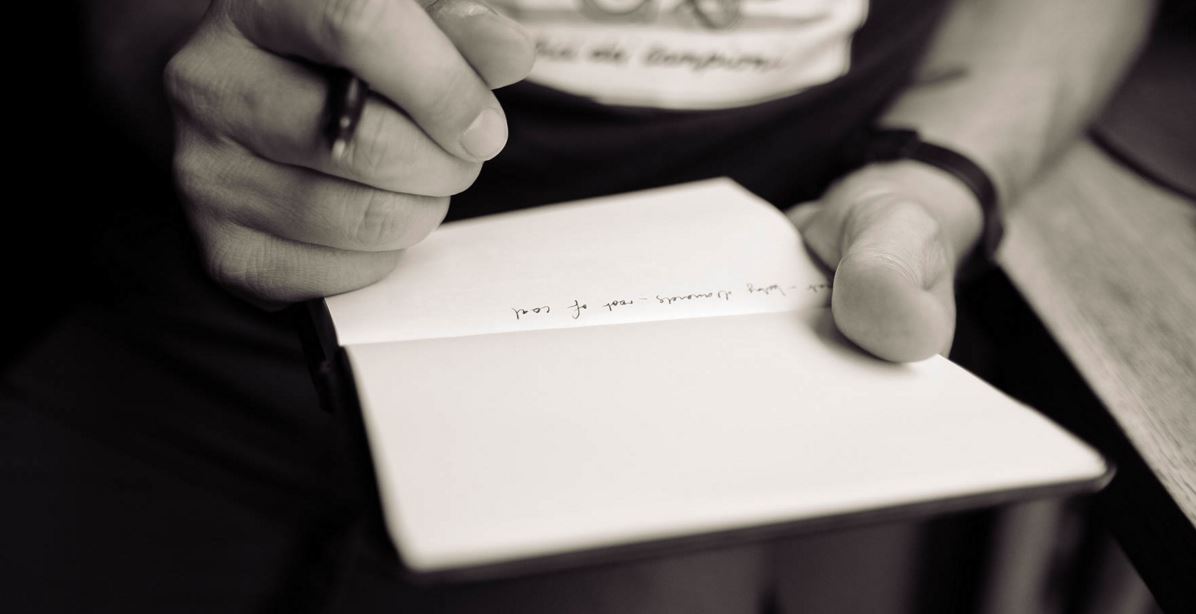Just a few days ago, I did something I’ve been struggling to do since college. I typed “End” at the end of a completed novel. I got so excited that I immediately got so shitfaced, I couldn’t do any editing the next day because of the hangover. Which probably wasn’t a huge loss for reasons I’ll explain later.
I should disclose that I wrote the book as part of a workshop. Because of that, I had a bit more structure and discipline than I would have just writing on my own. Still, I think I learned enough from it to give some hints if you’re struggling to complete your first book. Keep in mind, I’ve just completed the first draft of this book and it may never even see the light of day. I’m trying to be optimistic, though. Take all this with a pinch of salt.
1. Sit On Your Idea

The novel I wrote was based on idea that I had been kicking around for at least a year. I recommend writing a summary or short outline of your idea and sitting on it. If you come to hate it quickly, it’s probably not worth pursuing. If you still enjoy it after awhile, then it’s probably worth giving it a try. It also gives you a chance to iron out where you want to go with it. While I didn’t, it may be worth taking notes as to what you want to do with it.
2. Then Do It

Don’t let yourself get too caught up in outlining, planning, and expectations. Don’t feel hesitant to start if you don’t have an amazing opening line. This is your first draft. Sit down and start writing it. If you don’t want to start at the beginning of the story, start with the part of the story you like the most. I wrote my own book in order, but that may not work for you. If you need to write out of order and put it together later, then do it.
3. Set A Deadline For Yourself

Since I was in a workshop, the deadline was basically set for me. Putting aside the other deadlines for assigned milestones, it was roughly about a month for about 20,000 words. Your goal should be realistic based on your schedule and the length you have planned for the book. You can’t expect to have a 100,000 word epic novel in a month when you’re working a full time job and basically trying to function as a normal person. Then again, if you’re a writer you’re probably the furthest thing from that. It would be useful to set short term goals as well. For example, writing 2,000 words over a weekend. Which brings us to the next point.
4. Pace Yourself

While it’s important to try to reach your goal, you don’t want to burn yourself out or get bored with what you’re writing. To go back to the previous point, if you’re writing 2,000 words you shouldn’t force yourself to write more than say 1,000 words each day if you don’t feel capable of it. It’s very likely you’ll come to hate the work at some point or get blocked. Don’t be afraid to take a day off to stew it over a little if you need to. Don’t force yourself to write in cases like being sick, family emergencies, and so forth.
5. Save Most Of The Editing For Later

The goal here is getting words to paper. Most of the editing can wait until the first draft is completed. That’s not to say you should avoid editing along the way altogether. If you come up with something you want to add to a previous part, don’t be afraid to. Cutting should probably wait until later, unless you have something to replace the cut material with. I mentioned before that I didn’t look at the manuscript the day after I finished it. That lost day wasn’t a big deal. While I told myself I would start editing the next day, sitting on it was helpful. It gave me some time to clear my mind and pull myself out of the story. It let me look at it a little more objectively when I did start editing.
6. Let Someone Else Look At It

This is a step I haven’t gotten to as of writing this article, but was what I did with my previous book. Hiring an editor might be a bit expensive, but it’s an expense that’s worth it, whether you’re going to self-publish or send it out to publishers. It’s fine to have people you know look at it, but they’ll like be more charitable in reading it than they should and they won’t have the same eye for typos and inconsistencies as a professional.
Most of these pointers are based on my experience writing a short novel. Obviously, the process is much different for research based nonfiction and collections of poetry or short stories. Still, I hope this helps you complete the first draft of the book you’ve been wanting to write. Good luck.
Some of the coverage you find on Cultured Vultures contains affiliate links, which provide us with small commissions based on purchases made from visiting our site.

